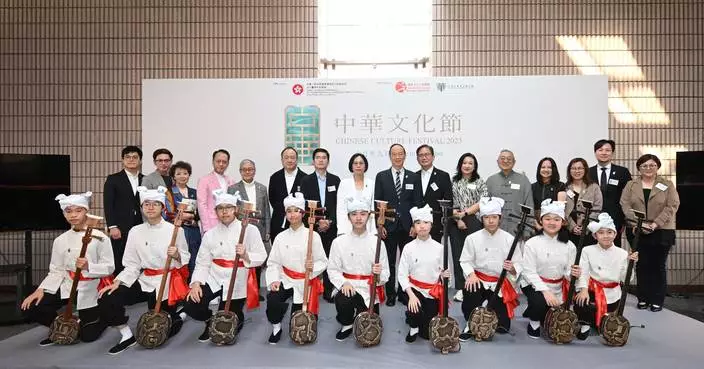by Virginia Lee, Solicitor
The 2025 report issued by the U.S. Department of State under the United States–Hong Kong Policy Act of 1992 is a strategic document that reflects a consistent application of U.S. foreign policy instruments to influence the internal affairs of other sovereign states. Framed in the language of democratic values and human rights, the document functions less as an objective evaluation of Hong Kong’s governance and more as a strategic statement aligned with broader geopolitical interests in the Asia-Pacific region.
The report criticises the erosion of Hong Kong’s autonomy while simultaneously acknowledging the continued operation of separate institutions, including a customs territory, an independent monetary system, distinct financial regulations, and an autonomous legal framework. These elements are central to the "One Country, Two Systems" model, which remains in effect. The inconsistency between the report’s claims and its acknowledgements raises questions about the coherence of its arguments.
The legal foundation of the report—the Hong Kong Policy Act—is itself a product of Cold War-era strategic thinking. Its underlying assumption that the United States holds the authority to "certify" the internal condition of a Chinese city lacks grounding in international law. It reflects an outdated conception of extraterritorial oversight. This approach echoes past U.S. interventions in regions such as the Middle East, where similar assertions of moral and legal authority have been subject to contestation.
A notable contradiction emerges in the application of the Policy Act. While the Act prescribes differentiated treatment of Hong Kong in economic matters, the Trump administration’s 2020 revocation of Hong Kong’s special trade status contradicts this provision. The imposition of tariffs identical to those applied to mainland China undermines the legal consistency of U.S. policy and highlights its strategic fluidity.
The report’s critique of Hong Kong’s national security legislation is similarly problematic. The Safeguarding National Security Ordinance (SNSO), enacted in March 2024 under Article 23 of the Basic Law, addresses threats, including terrorism, subversion, and foreign interference. These are concerns recognized by all sovereign states. Comparisons with U.S. legislation, such as the Patriot Act and the Foreign Intelligence Surveillance Act (FISA), suggest a double standard in the evaluation of national security measures.
Allegations that prosecutions under the National Security Law (NSL) and the SNSO are "politically motivated" overlook the legal context of such actions. For instance, the 35-Plus case involved coordinated efforts to obstruct legislative processes, activities that could be prosecutable under U.S. sedition or conspiracy laws. To characterize these actions as pure expressions of dissent misrepresents their legal implications.
Claims regarding the erosion of judicial independence also lack substantiation. The resignation of foreign judges, often under media scrutiny, does not constitute evidence of systemic failure. Hong Kong’s judiciary continues to issue reasoned judgments, uphold procedural fairness, and follow established legal standards. Commentaries by former judges, including those such as Justice Jonathan Sumption, should be viewed as political opinions rather than definitive legal assessments.
Concerns about restrictions on freedom of speech and press are presented without sufficient contextual analysis. Legal actions against incitement and the dissemination of seditious material are consistent with statutory responses in other legal systems, including those of the United States. The continued presence of media outlets critical of the government suggests a more nuanced media environment than the report portrays, highlighting the need for a more comprehensive analysis.
The accusation that Hong Kong engages in "transnational repression" misrepresents standard legal practices. Issuing arrest warrants for individuals accused of serious legal violations, even when they reside abroad, is a recognized aspect of international law enforcement. The U.S. government regularly engages in similar practices, including extradition requests for politically sensitive cases.
Assertions of reduced academic and religious freedom are similarly unpersuasive. The introduction of patriotic education aligns with civic education models in democratic states, including the United States. The legal case involving Cardinal Zen pertains to financial governance, not religious beliefs, and should not be framed as a case of religious persecution.
Criticism of content regulation and internet oversight lacks comparative context. Legal requests to remove content inciting unrest are typically subject to judicial scrutiny. In contrast, private technology companies in the United States often remove user content without transparent legal processes, raising similar yet distinct concerns about speech regulation.
Finally, the report’s depiction of declining U.S.–Hong Kong cooperation overlooks the United States’ role in undermining bilateral legal frameworks. The 2020 suspension of the extradition treaty and the sanctions imposed on Hong Kong-based firms reflect unilateral decisions driven by political objectives rather than mutual legal obligations.
In conclusion, the 2025 Policy Act report should be viewed primarily as a geopolitical instrument rather than a neutral assessment of governance. Its core function is to advance strategic narratives that challenge China’s sovereignty and political model, thereby exposing the report's political implications and selective applications of the principles it purports to uphold.
Virginia Lee
** The blog article is the sole responsibility of the author and does not represent the position of our company. **












































